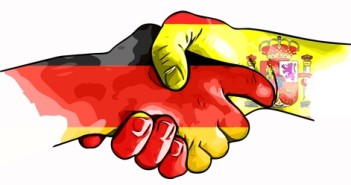The final results of the German elections show a clear victory for incumbent Angela Merkel and her CDU/CSU bloc. However, an absolute majority, last seen in 1957, wasn’t achieved.
Given the various pre-elections promises and the history of coalition negotiations, these will probably take time. We might see the Fed taper QE before a new government is formed in Berlin.
She won the best result since 1990 and is short just 5 seats from an absolute majority, which seemed like a possibility in the initial exit polls. Her current coalition partner FDP was left out, and so was the new anti-euro AfD party.
While the left wing parties have a majority in parliament, they are not expected to form a coalition. So, negotiations will begin with both the main opposition party: center left SPD, and with the left leaning green party, which could find itself in an unnatural coalition with Merkel. This cannot be ruled out after Merkel’s big U-turn against nuclear energy.
EUR/USD opened the week around the same levels it ended them, due to the mixed message: on one hand, Merkel’s re-election is euro-positive, but the uncertainty is negative.
For more, see the EURUSD forecast.



